MercoPress. South Atlantic News Agency
Economy
-
Friday, April 14th 2017 - 18:45 UTC
Mercosur and Canada hold talks for a possible trade agreement
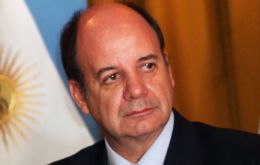
Mercosur and Canada re-launched discussions for a “possible trade agreement” this week, following a meeting of technical delegations in Argentina, which currently holds the chair of the South American group, and hosted the round of talks.
-
Thursday, April 13th 2017 - 07:30 UTC
Brazil central bank slashes money cost; estimates Selic rate at 8.5% by end of the year
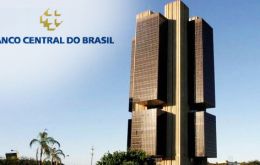
Brazil's Central Bank cut the key interest rate by a full one percentage point on Wednesday in an effort to inject life into the floundering economy. This was the fifth straight cut, taking the key Selic rate to 11.25%.
-
Wednesday, April 12th 2017 - 09:44 UTC
UK inflation steady in March with rising food and clothing prices
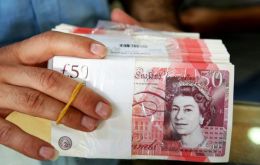
Inflation in the United Kingdom held steady last month, as rising prices for food and clothing were offset by lower air fares. The UK Office for National Statistics, ONS, said inflation as measured by the Consumer Prices Index remained at 2.3%.
-
Tuesday, April 11th 2017 - 16:42 UTC
Falklands will establish a dedicated Telecommunications Regulator

The Falkland Islands government has announced that with the introduction of the new Telecommunications Ordinance, recent focus has been on setting up structures to regulate the Sure exclusive license.
-
Tuesday, April 11th 2017 - 15:55 UTC
Brazil beef exports should return to normal in May, says the industry
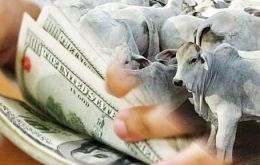
Brazil's beef exports should return to normal levels between April and May as the country's efforts to reverse import bans have started to bear fruit in the wake of a food safety scandal that surfaced last month, industry group Abrafrigo said.
-
Tuesday, April 11th 2017 - 15:38 UTC
Argentine court rules phoning the Falklands is a domestic call and 50% cheaper

A local tribunal from the Argentine northern province of Jujuy (bordering Bolivia) ruled against the telephone company for having billed a call to the Falklands/Malvinas Islands as international, “instead of domestic”, adding the ruling must be published in the largest circulation provincial and national dailies, pointing out that the phone link with the Islands must be charged as a domestic long distance.
-
Tuesday, April 11th 2017 - 15:30 UTC
UK on the verge of an export and spending boom, anticipates the EY Item Club
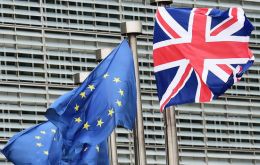
Britain is on the verge of an export and spending boom as economists rule out the likelihood of a slowdown this year. Strong global growth combined with the weak pound is expected to send overseas sales soaring, giving businesses the confidence to ramp up investment.
-
Tuesday, April 11th 2017 - 08:09 UTC
Brazil planning concession auctions for another ten airports

Brazilian Minister of Planning, Development and Management, Dyogo Oliveira said the government is considering awarding concession contracts with the private sector for at least another ten airports. Potential terminals include Goiânia, Vitória and Recife, according to the minister.
-
Tuesday, April 11th 2017 - 05:30 UTC
Chinese company buys 50% share of the Veladero mine in Argentina

Barrick Gold and Shandong Gold, a Chinese company, have signed a strategic co-operation agreement that includes half the Veladero gold mine in Argentina. Shandong has agreed to purchase 50% of the Veladero mine in Argentina for US$960 million, and a joint venture will be created to operate it.
-
Monday, April 10th 2017 - 08:02 UTC
Bank of England asks financial firms to submit Brexit contingency plans

The Bank of England has asked City financial firms in London to submit Brexit contingency plans, with Governor Mark Carney warning of major economic harm if negotiations between Britain and the EU falter.
